Choosing the right bag starts with understanding the different types of bag materials. These offer durability, functionality, and style. From the rustic appeal of straw to the sleek look of leather, each textile has unique advantages, whether you prioritize a trendy look or longevity.
Finding the right match for your lifestyle and bag type is key. Popular handbag fabrics include leather, canvas, denim, nylon, polyester, and straw. Whether you’re after something lightweight, moisture-resistant, or luxuriously soft, exploring these choices can reveal the right fabric for your needs.
Types of Bag Materials
Leather
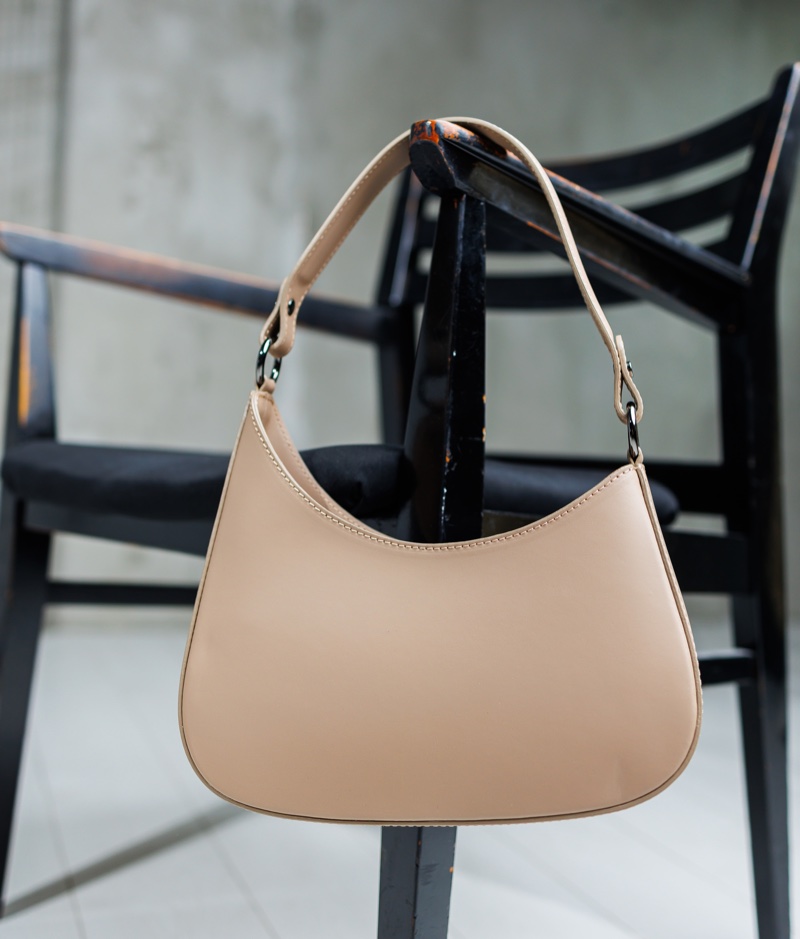
Leather is a sturdy material made from animal hides, known for its luxurious feel. It’s commonly used in handbags, briefcases, doctor bags, and backpacks. It offers a look that works for both casual and formal settings.
Leather bags are incredibly long-lasting, with the material developing a rich patina over time. One of leather’s main advantages is its natural water resistance, which makes it more practical for daily use, though it’s not fully waterproof.
Nevertheless, leather requires special care to maintain its quality, including regular conditioning to prevent cracking. Despite these factors, leather is prized for its strength, style, and ability to age gracefully.
Canvas
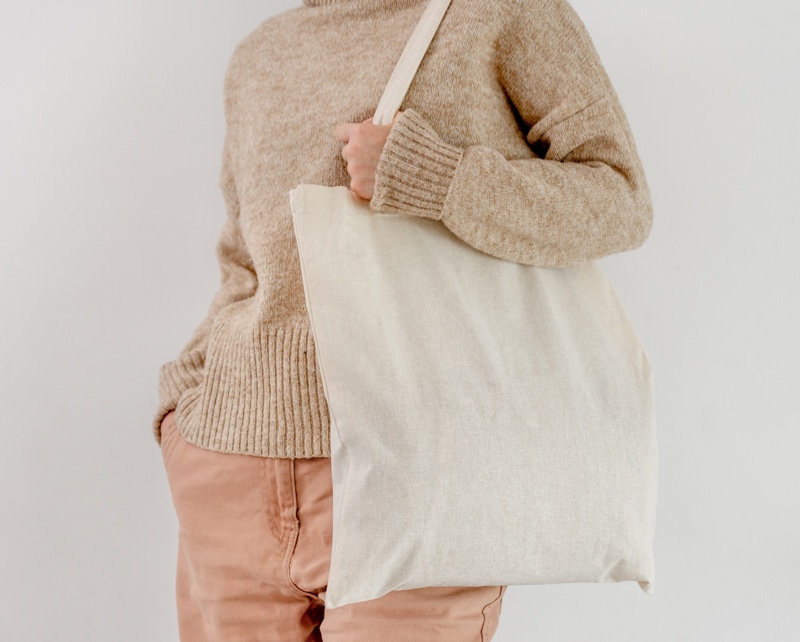
Canvas is a durable fabric made from cotton or a fiber blend, commonly used for reusable grocery bags and casual totes. Its strength makes it perfect for carrying heavy loads, and it’s easy to clean, making it a practical choice for everyday use.
When made from organic cotton, canvas becomes an eco-friendly option for those who value sustainability.
However, canvas fabric isn’t naturally water-resistant and can get heavier when wet. Despite this, its durability makes it a favorite for those who need a sturdy, reliable fabric bag for daily activities.
Denim
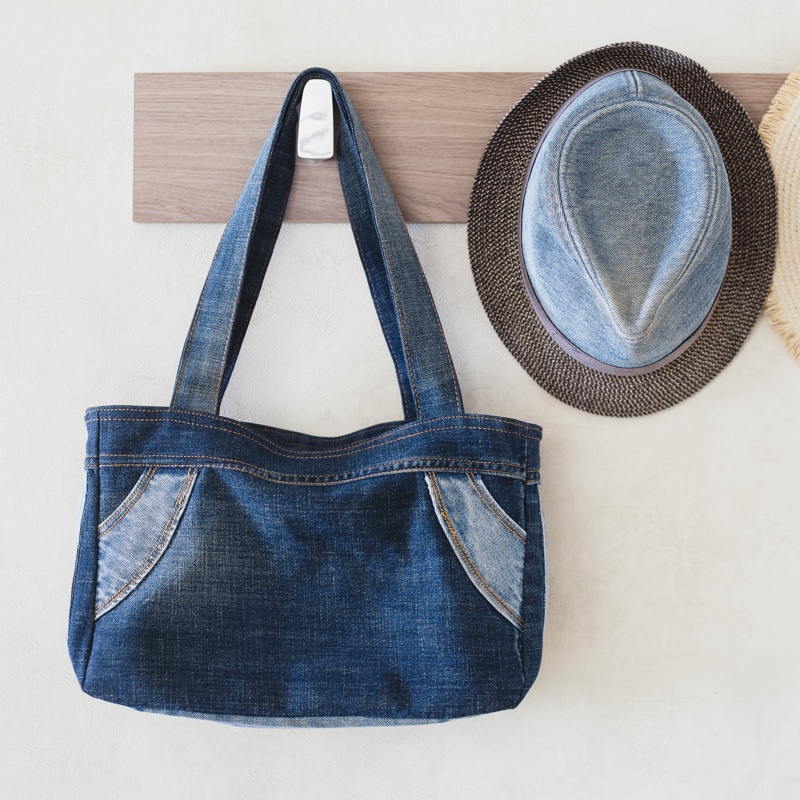
The cotton-based fabric of denim is most commonly used in jeans and is also a favorite for casual bags like backpacks and totes. Its rugged, strong nature makes it ideal for frequent use. Denim bags are tough, able to withstand regular wear and tear, and easily pair with a wide range of casual outfits.
However, denim has its drawbacks. Over time, denim can fade, though this often adds a charming, vintage appeal. Despite this, the fabric remains a great choice for those seeking a durable, trendy option for their daily needs.
Mesh
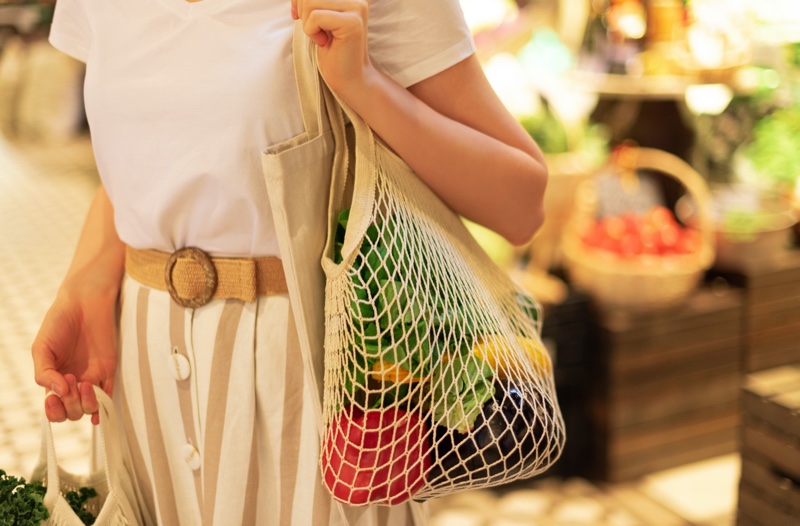
The lightweight, breathable fabric of mesh is often used for casual and functional bags like beach totes and sports bags. It’s made from interwoven synthetic or natural fibers, allowing for airflow. Its flexibility and ease of cleaning make it a practical, low-maintenance option.
That said, mesh isn’t the most durable material and can tear easily with heavy loads or sharp objects. It’s also not water-resistant, so it won’t protect your items in wet conditions. Despite these drawbacks, mesh bags are ideal for light carrying needs.
Neoprene
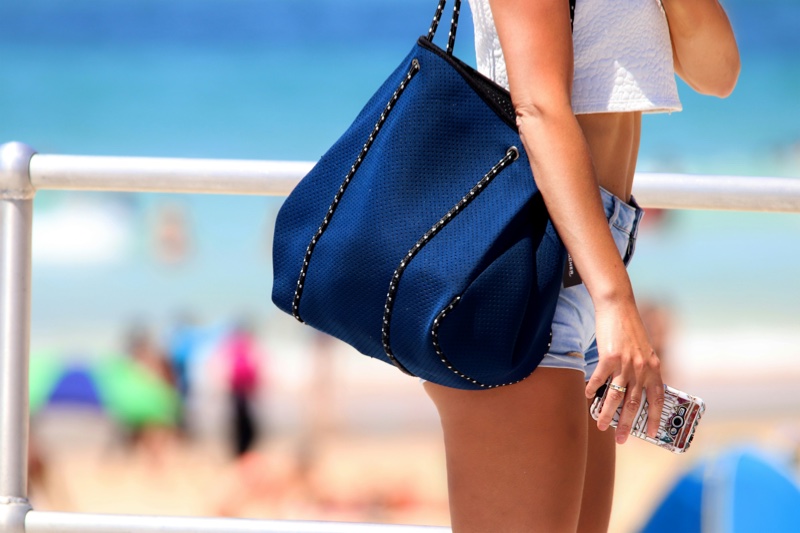
Neoprene is a synthetic rubber material commonly used for bags that need extra protection, such as beach bags, laptop sleeves, and gym bags.
Neoprene is known for its flexibility and cushioning, providing excellent insulation. It also repels water, making it ideal for environments where exposure to moisture is likely.
Even so, neoprene can feel bulky compared to other fabrics, and its lack of breathability can trap moisture inside the bag in humid conditions. Additionally, as a synthetic material, it’s less environmentally friendly.
Non-woven PP
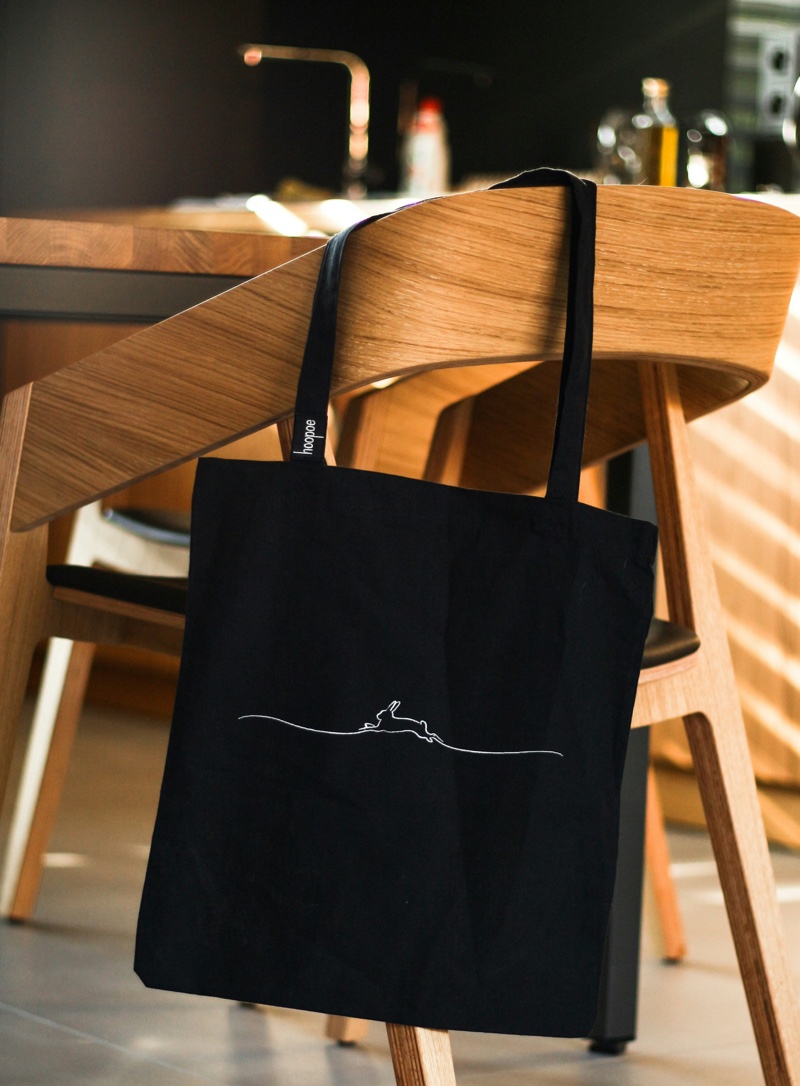
Non-woven PP (Polypropylene) is a lightweight, synthetic material frequently found in reusable shopping bags and promotional totes. Made from bonded plastic fibers, it’s valued for its affordability and ability to be produced in many colors and patterns.
While it’s sturdy enough for light and regular use, non-woven PP isn’t the most long-lasting option and can wear out more quickly than heavier fabrics. Moreover, since it’s derived from plastic, it’s less environmentally friendly than natural fibers like cotton or jute.
Nylon
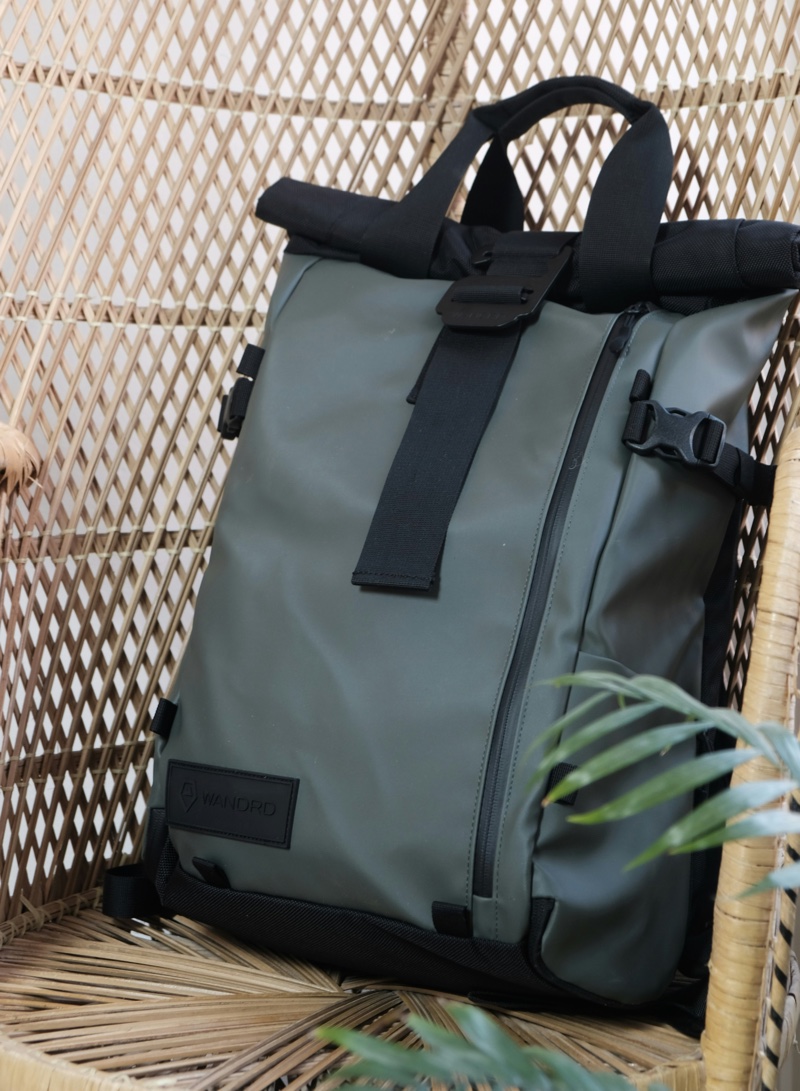
Another popular synthetic fabric known for being lightweight, durable, and moisture-wicking is nylon. This makes it popular for backpacks, travel bags, and outdoor gear.
Its strength allows it to handle heavy loads without easily tearing, while its water resistance helps protect your belongings from the elements.
Though nylon is practical, it’s a synthetic material derived from petroleum, which raises environmental concerns. Additionally, while it resists water, it doesn’t offer the same breathability as natural materials. Despite these limitations, nylon remains a go-to material for many bag styles.
Polyester
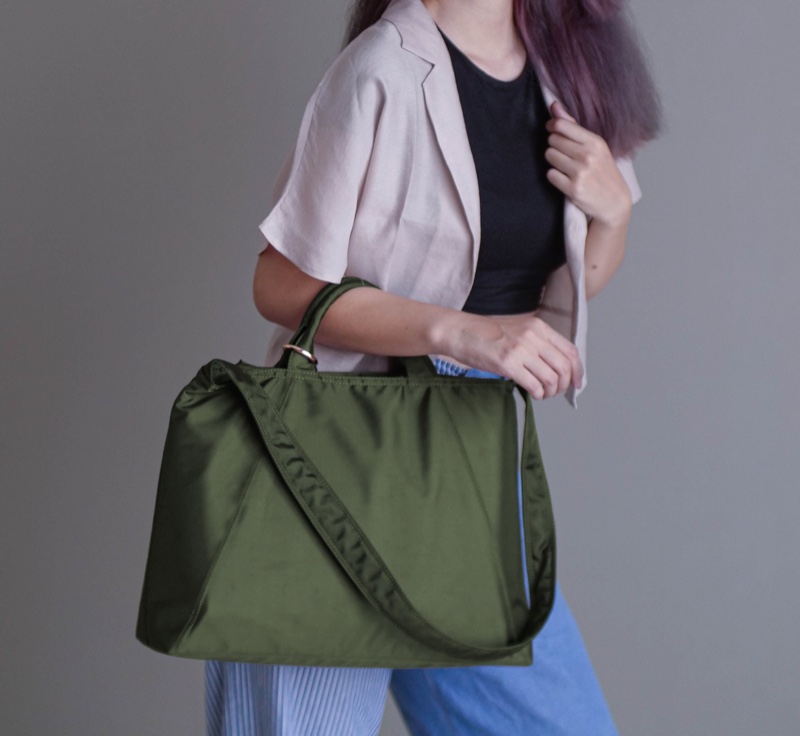
Polyester is a synthetic fabric widely used in different bags, from everyday purses to travel duffels. This versatile material is known for its strength and resilience. Polyester is also water-resistant, which helps keep your belongings dry in light rain or damp conditions.
It can be made from petroleum or more sustainable options like recycled plastic bottles. Although long-lasting, polyester has its downsides. It lacks the luxurious feel of natural fibers like leather or cotton. Despite this, its affordability and ease of care make it a popular option.
Straw
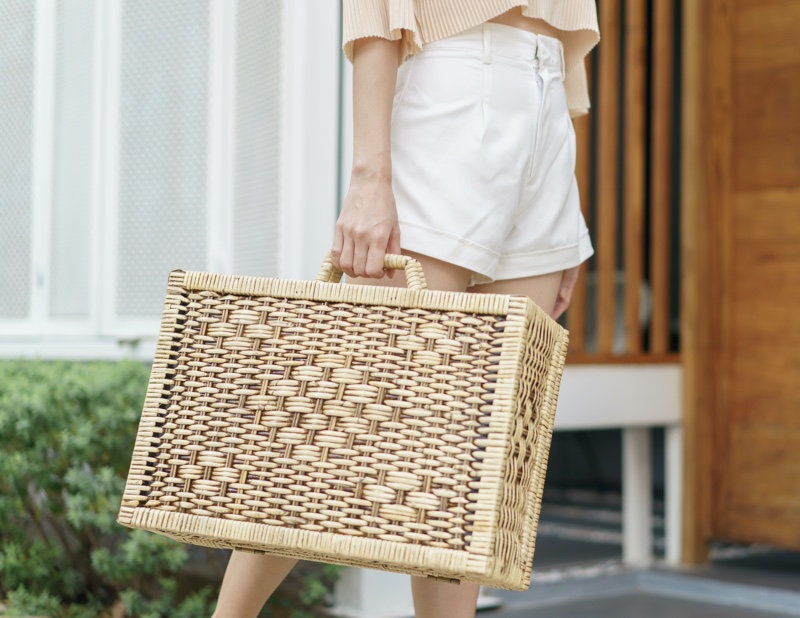
Straw is a natural, raw material often used for summer bags, beach totes, and casual carryalls. Lightweight and breathable, straw bags are perfect for warm weather and outdoor activities. The rustic, natural look adds charm to casual outfits.
Straw is typically woven from materials like raffia, seagrass, wheat straw, palm leaves, cornhusk, bamboo, and rattan. This gives the bags a unique texture.
Despite its charm, straw isn’t very durable and tends to fray or break with frequent use. It’s also not water-resistant, making it less practical for wet or humid environments.
Suede
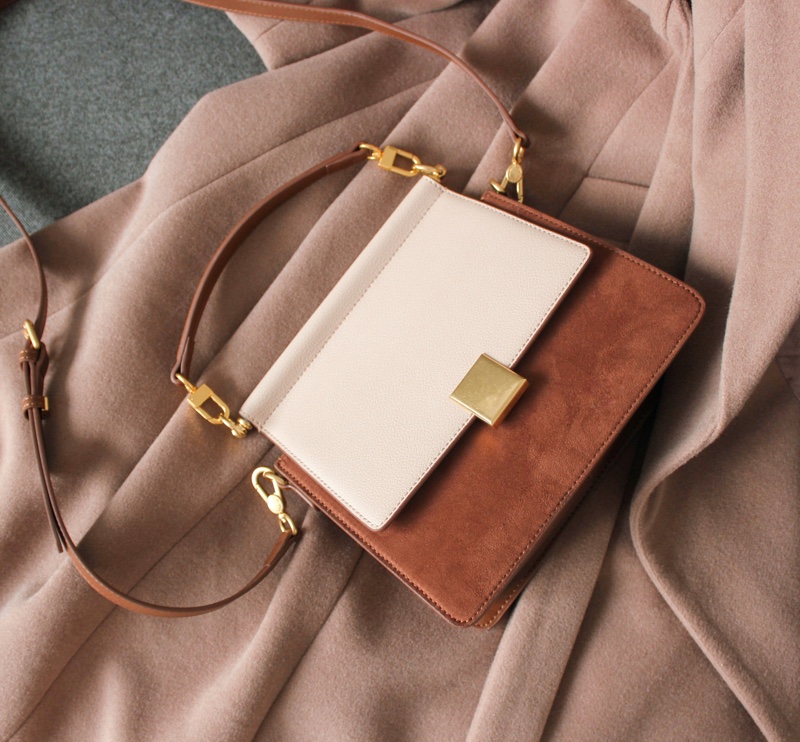
The soft and velvety material of suede is derived from the underside of leather. It is commonly used for shoulder bags and clutches. Its smooth texture gives bags an elegant feel. Suede is lighter and more flexible than traditional leather.
However, suede is not water-resistant and stains easily, making it less suitable for wet or rugged conditions. It requires extra care and attention to maintain its soft texture and prevent damage. Despite these limitations, suede remains popular for those seeking a high-end look in their bags.
Vegan Leather
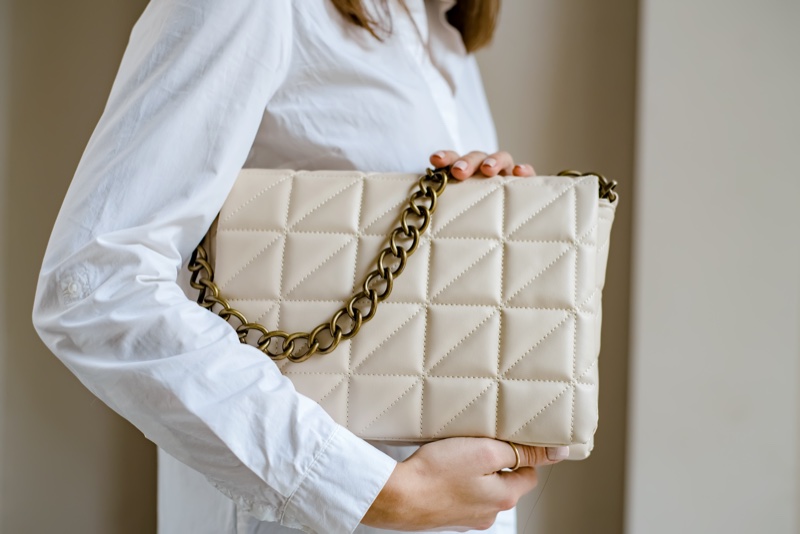
Vegan leather is a cruelty-free alternative to traditional leather and is made from synthetic or plant-based materials like polyurethane (PU) or pineapple leaves (Piñatex).
It’s widely used for fashion bags, wallets, and backpacks, offering the sleek appearance of real leather without ethical concerns. Vegan leather is easier to maintain than genuine leather, as it doesn’t require conditioning and can be wiped clean with minimal effort.
However, vegan leather doesn’t develop the same patina or durability as real leather and many synthetic versions are made from plastic-based materials, which can raise environmental concerns.
Velvet

Plush and luxurious, velvet is often used for evening bags, clutches, and more formal handbags. Its rich texture makes it a favorite for special occasions or elegant affairs. Velvet bags stand out with their soft, smooth feel and vibrant, jewel-toned colors.
That said, velvet is delicate and prone to wear, making it less suitable for everyday use. It also isn’t water-resistant, so exposure to moisture can damage the fabric.
Popular Bag Lining Fabrics
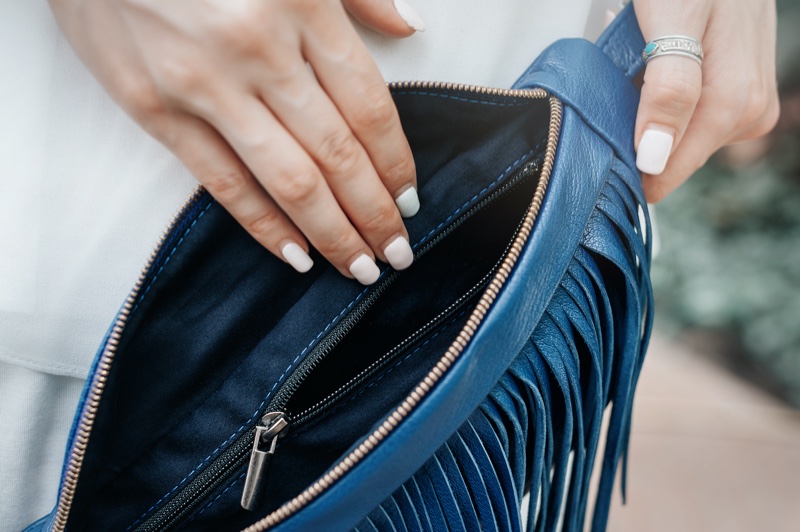
Bag linings are essential for protecting the bag’s interior, adding durability, and improving its overall look and feel. The right lining can upgrade functionality, prevent wear, and make cleaning easier. Here are some of the most popular lining materials:
Polyester: A cost-effective, durable, water-resistant fabric, making it a top choice for everyday and travel bags.
Nylon: Lightweight and strong, this common material also repels water and is frequently used for backpacks and outdoor bags.
Cotton: A breathable, natural option, often used in eco-friendly or casual bags, offering a soft and comfortable feel.
Silk: This luxurious and smooth, high-end natural fabric is found in premium bags and adds an elegant touch.
Microfiber: Soft and stain-resistant, providing a practical yet refined lining option for bags that require easy maintenance.











